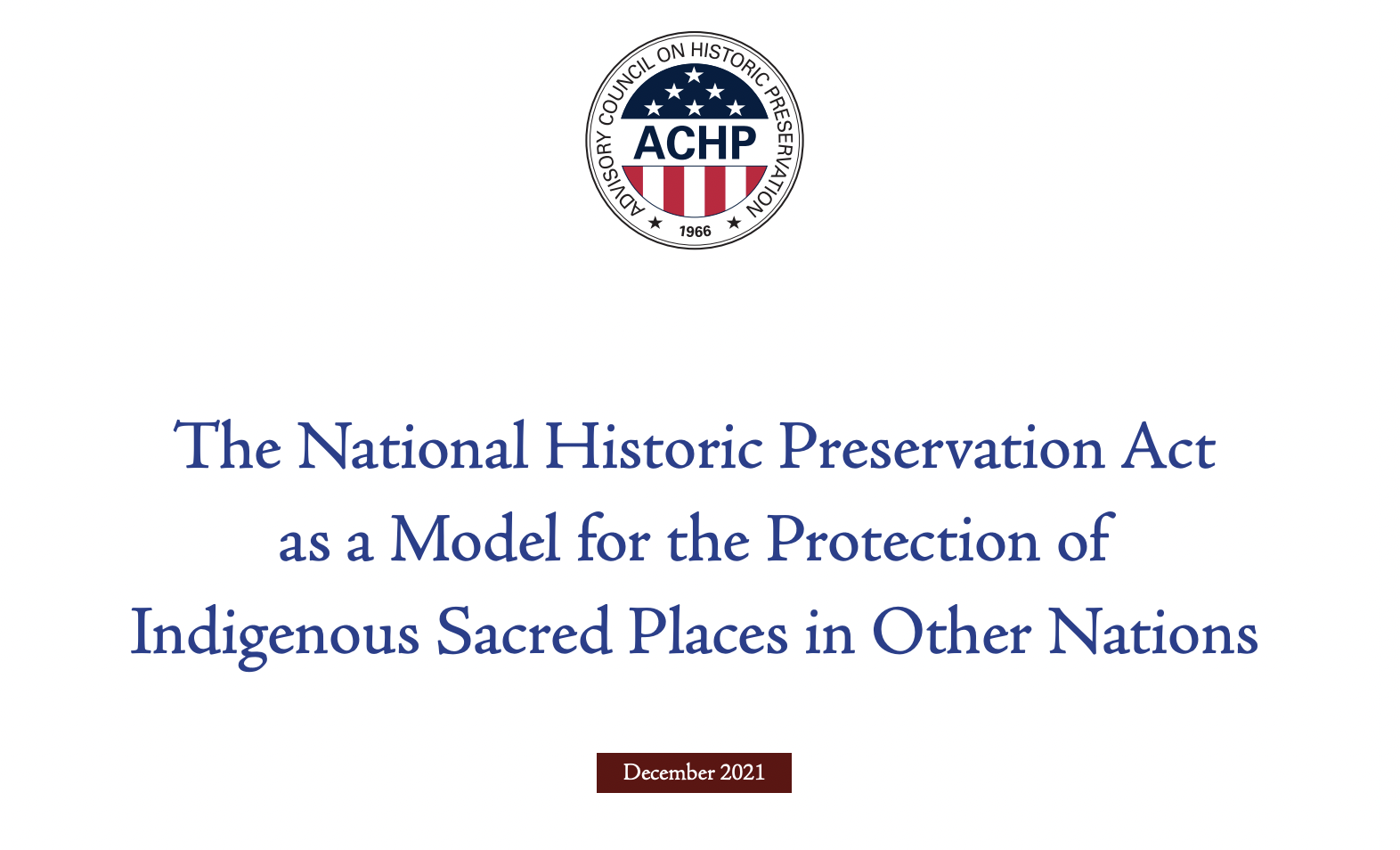
- Details
- By Jenna Kunze
The Advisory Council on Historic Preservation (ACHP)— an independent federal agency that advises the president and Congress on policy—has released a report on the protection of Indigenous sacred sites.
The report analyzes components of a pre-existing historic preservation best practices law and identifies provisions relevant to Native American tribes. It’s called ‘The National Historic Preservation Act as a Model for the Protection of Indigenous Sacred Places in Other Nations.’
The advisory council conducted the analysis in response to a 2014 request from the Hualapai Tribe and the Oglala Sioux Tribe, in nation-to-nation consultations leading up to the United Nations Conference on Indigenous Issues.
Want more Native News? Get the free daily newsletter today.
At the time, spokespersons from both tribes gave verbal testimony and submitted written comments suggesting that “working with indigenous Indian tribes on the preservation of places that hold religious and cultural significance” to them be added to the discussion at the World Conference. Both Indian tribes also suggested that the National Historic Preservation Act (NHPA), which, among other things, requires federal agencies to work with Indian tribes to consider effects to historic properties, might serve as a model for other countries.
The report includes relevant Indigenous protection laws in Canada, Australia, New Zealand, Sweden, Norway, and Finland.
“The report is an invaluable contribution toward understanding historic preservation in a global context,” said tribal liaison in the repatriation office at the National Museum of Natural History in Washington, DC, Dorothy Lippert. “For Indigenous people, there’s a real sense of being connected through similar histories and similar perspectives. This is a great compilation of information and sources; I think my colleagues will find it immensely useful.”
More Stories Like This
Native News Weekly (August 25, 2024): D.C. BriefsDeb Haaland Earns Endorsement From Communications Workers of America Local 7076
University Soccer Standout Leads by Example
Two Native Americans Named to Democratic Congressional Campaign Committee's“Red to Blue” Program
Cheyenne River Youth Project Hosts Young Women’s Winter Camp as Part of Lakota Culture Internship
Help us defend tribal sovereignty.
At Native News Online, our mission is rooted in telling the stories that strengthen sovereignty and uplift Indigenous voices — not just at year’s end, but every single day.
Because of your generosity last year, we were able to keep our reporters on the ground in tribal communities, at national gatherings and in the halls of Congress — covering the issues that matter most to Indian Country: sovereignty, culture, education, health and economic opportunity.
That support sustained us through a tough year in 2025. Now, as we look to the year ahead, we need your help right now to ensure warrior journalism remains strong — reporting that defends tribal sovereignty, amplifies Native truth, and holds power accountable.
 The stakes couldn't be higher. Your support keeps Native voices heard, Native stories told and Native sovereignty defended.
The stakes couldn't be higher. Your support keeps Native voices heard, Native stories told and Native sovereignty defended.
Stand with Warrior Journalism today.
Levi Rickert (Potawatomi), Editor & Publisher

